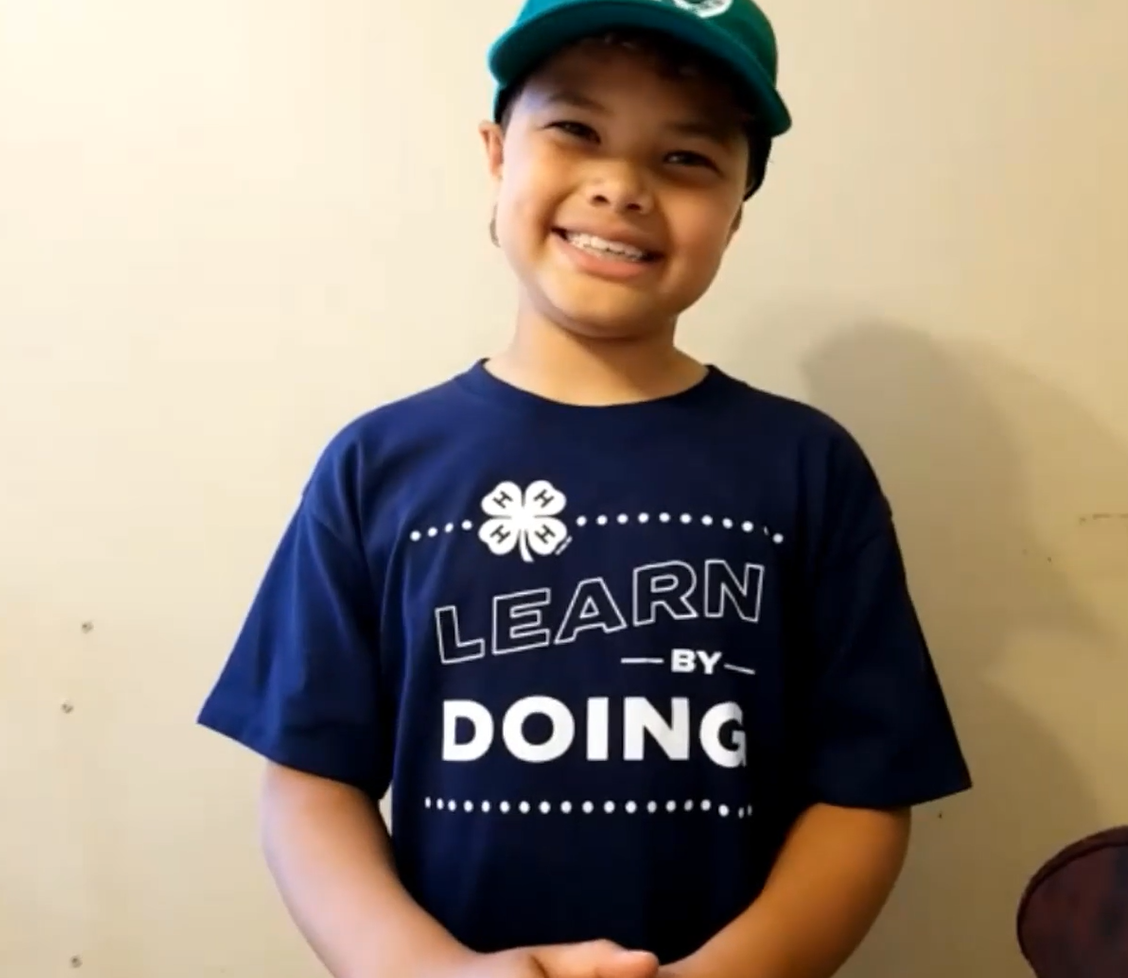Michigan 4-H and Learning to Give partner to support communities
Michigan 4-H is providing philanthropy education virtually in partnership with Learning to Give organization to continue to support community needs.

According to Suffolk University, “Service-learning is a pedagogy integrating academically relevant service activities that address human and community needs. Participants connect knowledge and theory to practice by combining service with reflection in a structured learning environment.”
Definition aside, doing a service project allows youth and adults to feel good because they are able to positively impact their community. This is what 4-H does best. The 4-H motto is, “Make the best better.” Doing a service project can teach many life skills such as empathy, character building, responsibility and so many more. 4-H leaders can be proud of the projects their club accomplishes under their guidance as well as be proud of the life skills the youth will have gained through the completion of service projects. In addition, the youth will build their leadership skills and add to their resumes for when they apply to colleges, scholarships, jobs or just apply the skills in daily life.
Getting started on a service-learning plan can sometimes be challenging, with so many questions such as how do I start? What do we do? How do I get the youth interested? Having a guide to help leaders and members through the process can help ease that process as well as make the educational portion more fulfilling.
Michigan 4-H and Learning to Give are partnering to offer Philanthropy and Service Education to 4-H clubs and community groups or individuals. Lessons are separated into three age groups: Cloverbuds – 5-to-7-year-olds; youth – 8-to-12-year-olds; and teens – 13-to-19-year-old. Videos and lessons are in development for a year-long calendar of opportunities to engage with communities. The structure supports clubs and groups interested in a service-learning philosophy.
The year-long plan will serve as a guide. Starting with Introduction to Philanthropy, which helps explain what philanthropy is, in the first video the participants meet their peer guides, Ruell and Rollen. Ruell and Rollen take participants on a journey to learn about philanthropy. Each age group then has an age appropriate lesson to complete.

Lesson two guides groups through Connecting Skills and Interests to Community Needs, with a lesson to support this effort. This is followed by the next lesson that focuses on philanthropic terms and needs assessment discussion. Team building games are encouraged during this lesson as well. At this point, it is time for groups to investigate and prepare for their selected community project. While planning, clubs will decide what types of service their project will entail: indirect, direct, advocacy or research. Once these decisions are made, youth will take action all while reflecting on the experience throughout. Finally, at the conclusion of the project, groups will share their impact.
Another helpful component to this program is the plan to offer support to 4-H leaders or adult mentors during quarterly support virtual meetings which are also listed on the website for participants to utilize as needed.
While 4-H youth and teens are engaging with their community, they are also demonstrating possibly all of the Michigan 4-H Guiding Principles for Positive Youth Development:
- Youth develop positive relationships with adults and peers.
- Youth are physically and emotionally safe.
- Youth are actively engaged in their own development.
- Youth are considered participants rather than recipients in the learning process.
- Youth develop skills that help them succeed.
- Youth recognize, understand and appreciate multiculturalism.
- Youth grow and contribute as active citizens through service and leadership.
.png?language_id=1)
The Michigan 4-H and Learning to Give partnership initiative is open to everyone. If you use these resources, please share how the materials have helped your group complete their service project in your community. In addition, let us know what other support you might need to be successful.
4-H grows successful youth through positive developmental relationships. If you would like to learn more, visit the Michigan 4-H website. To learn more about youth development programs, contact D’Ann Rohrer at drohrer@msu.edu or 231-845-3361, or the Leadership, Civic and Cultural Engagement team at MSUE.DL.4HLeadership@msu.edu.
To learn about the positive impact of Michigan 4-H youth leadership, citizenship and service and global and cultural education programs, read our Impact Report: “Developing Civically Engaged Leaders.” Additional impact reports, highlighting even more ways MSU Extension and Michigan 4-H have positively impacted individuals and communities can be downloaded from the MSU Extension website.
Find other global educational opportunities on the MSU Extension Global and Cultural Education website. For more information about 4-H learning opportunities and other 4-H programs, contact your local MSU Extension county office.



 Print
Print Email
Email



